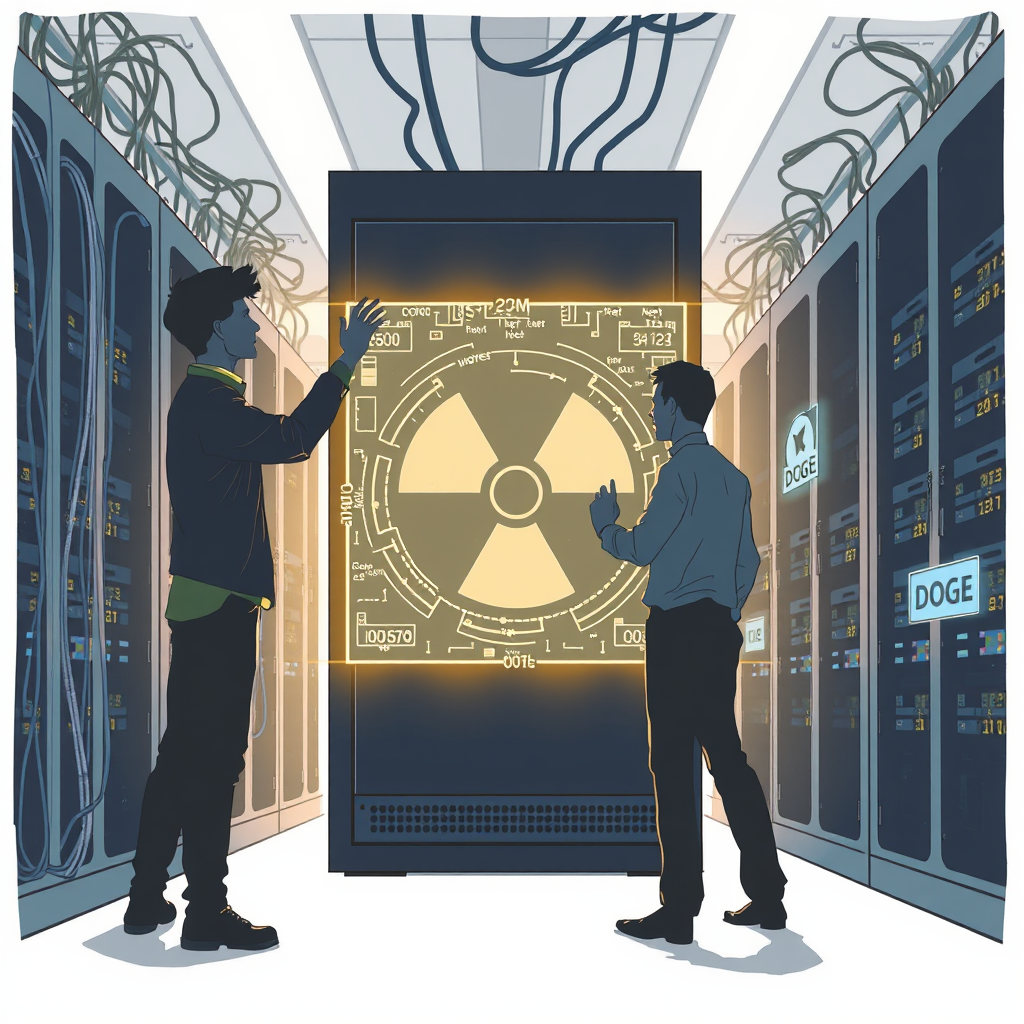DOGE Insiders Breach Nuclear Secrets Networks?

Concerns are mounting over potential security breaches at the Department of Energy (DOE) following reports that individuals affiliated with DOGE, Elon Musk’s government efficiency initiative, have gained access to classified networks housing sensitive information about U.S. nuclear weapons programs. National Public Radio (NPR) reported that Luke Farritor, a 23-year-old former SpaceX intern, and Adam Ramada, a venture capitalist, have reportedly had accounts on these closely guarded systems for at least two weeks.
Neither individual appears to possess prior experience in nuclear weapons handling or classified information management, raising significant questions about vetting procedures and potential vulnerabilities. NPR’s reporting is based on two independent sources who claim to have directly observed the names of Farritor and Ramada within the networks’ directories.
While the extent of their access to classified data remains unclear, sources suggest this represents an escalation of DOGE’s presence within the DOE, potentially establishing a “toehold” for future requests and access to sensitive materials. One source characterized the situation as something “to make note of,” warning it “could lead to something bigger.”
The Department of Energy has vehemently denied the claims. A spokesperson issued a statement calling the NPR report “false,” asserting that no DOGE personnel have accessed the National Nuclear Security Administration (NNSA) systems. The spokesperson stated that Farritor and Ramada worked within the agency for a few days in February and subsequently departed.
However, this denial clashes with earlier reporting. CNN reported in February that DOGE employees, including Farritor, were actively seeking access to these systems. At that time, Energy Secretary Chris Wright publicly denied they would be granted access, dismissing rumors of potential breaches as untrue and stating they lacked the necessary security clearances.
This evolving situation demands a thorough and transparent investigation. The potential for unauthorized access to nuclear secrets, even if currently limited, is a grave concern. The conflicting statements from DOE officials further erode public trust and necessitate a full accounting of the circumstances surrounding DOGE’s involvement within the agency. The initial reports, if substantiated, point to a serious lapse in security protocols and a troubling disregard for the protection of highly sensitive national security information.